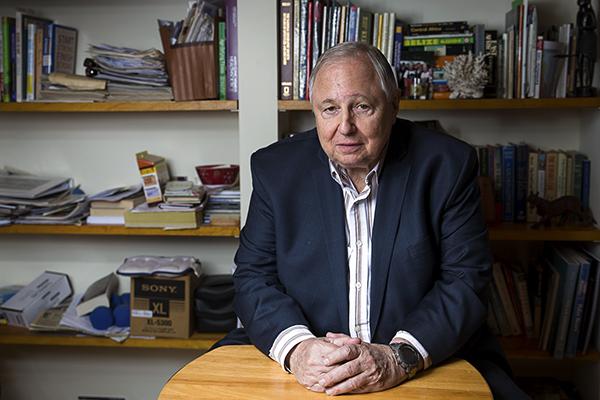Virginia universities may start using a new way to report sexual assaults that a GW law professor proposed.
John Banzhaf, a public interest law professor, proposed during a National Press Club event last spring a “third ground” in sexual assault reporting to make the process safer for survivors and create more consistent disciplinary actions for perpetrators. The Commonwealth of Virginia announced last week it is exploring a centralized system outside of universities to deal with campus sexual assaults – similar to the model Banzhaf suggested.
Banzhaf said the proposal involves hiring trained investigators to review sexual assault cases at member schools, who could opt into the program, which would be specifically for colleges and universities.
Banzhaf said the proposal is necessary because neither campus police nor university officials are equipped to handle sexual assault cases. The Department of Education is investigating more than 160 colleges and universities for their responses to sexual violence, and for many schools, properly handling sexual assault cases requires additional staff and training that have left some unprepared.
Banzhaf said these types of cases are “almost impossible to prove beyond reasonable doubt” because these cases involve “he-said-she-said” arguments and minimal solid evidence. He added that inefficient sexual assault investigation techniques and bias from universities trying have caused “real screw-ups on all sides.”
“It seems to me very clearly that most universities, even large good ones like GW, lack the resources to do these things because investigating any kind of rape takes special training,” Banzhaf said.
Virginia’s proposed program would create a regional center to investigate sexual assault cases, removing the burden of investigation from universities, Inside Higher Ed reported.
Virginia Gov. Terry McAuliffe allocated $100,000 last month in response to a proposed initiative to study and create the center. This money would be used to hire officials for the center and put it into practice among Virginia’s public universities, which would have the option to join.
GW has faced at least two Title IX-related lawsuits. In 2011, GW revamped its sexual assault policy to make clear the rights of perpetrators and survivors, as part of the settlement of one of the Title IX lawsuits.
Although Banzhaf said Virginia’s plan is “a step in the right direction,” he questioned how effective it would be because Virginia is a large state with many colleges spread out across the region. He said he had initially called for the plan to be tested in a city like Boston or D.C., rather than in an entire state.
Banzhaf said the consortium will ideally handle the investigation as well as the decisions on punishments, which would rely on the consortium’s board of directors, hiring retired lawyers and retired judges who have “no connection with the schools” and can sit on panels to decide if, in their legal opinion, a sexual assault occurred.
Banzhaf said a key benefit of his proposal is eliminating all “suspicion of bias.”
“No one can point a finger and say this consortium did a bad job with the investigation or a bad job with the adjudication,” Banzhaf said.







